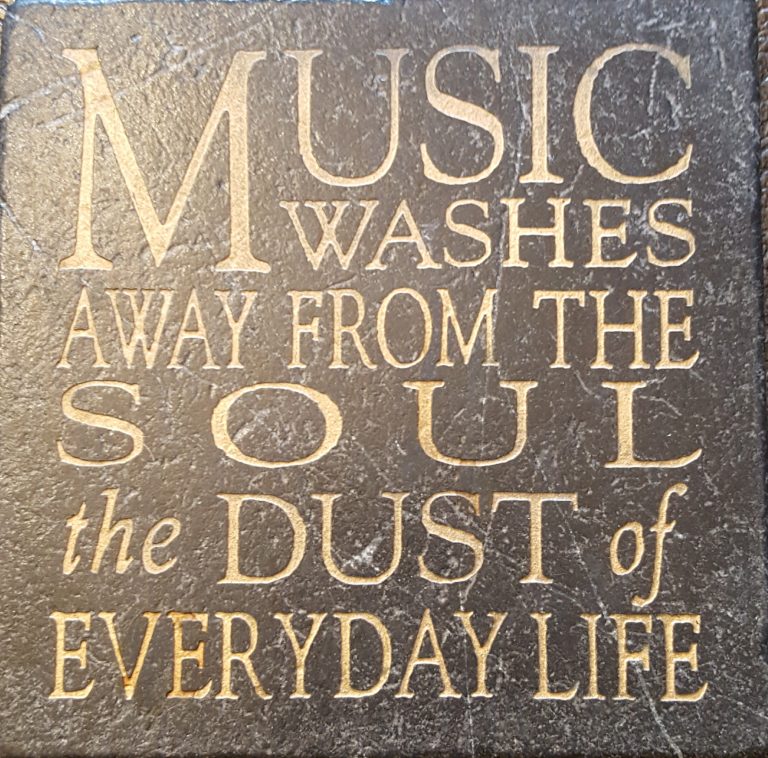Can You Really TEACH Someone to Sing, or Do They Have To Be “BORN WITH IT?”
I get asked if you can really teach someone to sing, or if you have to be “born with it”, fairly frequently. This is the $64,000 dollar question, or with today’s inflation, make it more like the $1,000,000 question! The last time it happened, I was judging a vocal competition at a high school, where the parents were in the audience. Afterward, there was a Question and Answer period, where the other judge and myself sat on the stage and fielded a variety of queries about singing and the voice.
One parent raised his hand, and doubtfully, although respectfully, asked, “Can you really teach someone to sing? I mean, don’t they have to be born with a great voice?” Putting aside any frustration I may have about how misunderstood and under-appreciated the role of a good voice teacher can be in the success of a student (that’s a discussion for another day), my colleague and I both gave what I think is the most honest and complete answer we could— “yes, and no”. Let me explain…
Like any activity in life, we are all born with certain physical, mental and and emotional characteristics that may predispose us to success in a certain activity. If you want to be a great tennis player, it helps to be born with terrific reflexes, great hand-eye coordination, physical strength and stamina. If you want to be a great singer, it helps to be born with a healthy vocal instrument (larynx, vocal cords and lungs) and an innate “feel” for music— the artistic sensibility for interpreting songs and “selling” them to an audience.
Using the metaphor of awards at a competition, I’ve always thought of being “born with it” this way— some singers start out with what I call “Blue Ribbon” voices— that’s a voice that comes out of the starting gate a winner! Then there are the Red Ribbon voices— second place. Not as unique and wonderful as the Blue Ribbon, but still very good. Then there’s the White Ribbon— third place. This is a fairly good voice. Carrying the metaphor further, fourth place is a Yellow Ribbon voice, which is average. Finally there’s the Green Ribbon voice, which is starting out below average, and perhaps with some problems.
So yes, some of us start out more naturally-equipped to sing. But what REALLY counts, is what you do with it from there! And that’s where the “teach” part of the equation comes in. Studying voice with a good teacher makes all the difference in upping your game and using what you were born with to the max! So how do you do that?
To break it down into its most basic form, I would say that two things make a great singer—
1. Vocal tone quality and technique (the actual sound of the voice itself). It is a result of several factors— the health and quality of our vocal cords, the shape and size of the resonating cavities in our throat and head where the air vibrates to develop the sound, the way we breathe and support the voice, and even our speech habits. The way we are built is something we cannot change. But the way we USE what God gave us to work with is something we CAN change. By training you in the best possible vocal technique, a competent voice teacher can help you control and optimize your sound. You WILL get better, and in many cases, truly excel!
2. Musicality and Performance (the way the singer expresses the song). This may be a harder nut to crack. When someone with innate artistry and communication skills sings, there’s a certain captivating quality that just connects with the song and the audience in a special way. If you’re not born with that natural affinity for expressing lyrics and music, it can be more challenging. But certainly listening to music, studying songs and singers, and developing your overall musicianship will definitely IMPROVE your musicality and performance.
So the bottom line is this: A great singer is made of “part nature, part nurture”. In other words, you can have a great natural voice, but if you don’t train, practice, and develop it correctly, it might not go any further than what you started out with, or you could even damage or lose your natural instrument! On the flip side, you can start with a mediocre voice, but with the right training and hard work, you can really make something of it!
Of course, the best possible combination is to have both— a good instrument to start with, and the right training to make the most of it. Whether you started with a Blue Ribbon Voice or a Yellow Ribbon one, you can always look forward to progress and improvement. A burning desire to sing, good training and hard work might even change the color of your ribbon!







